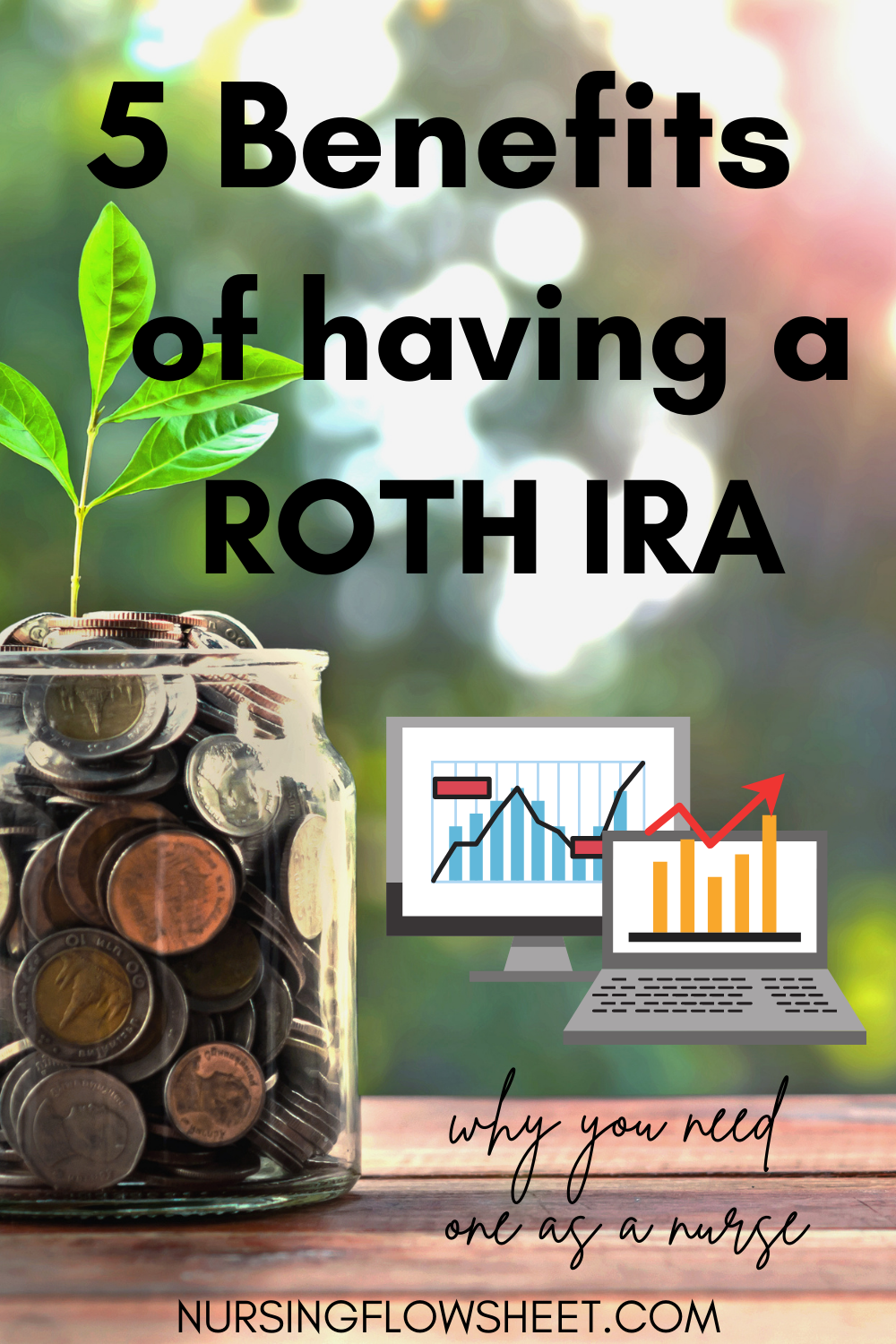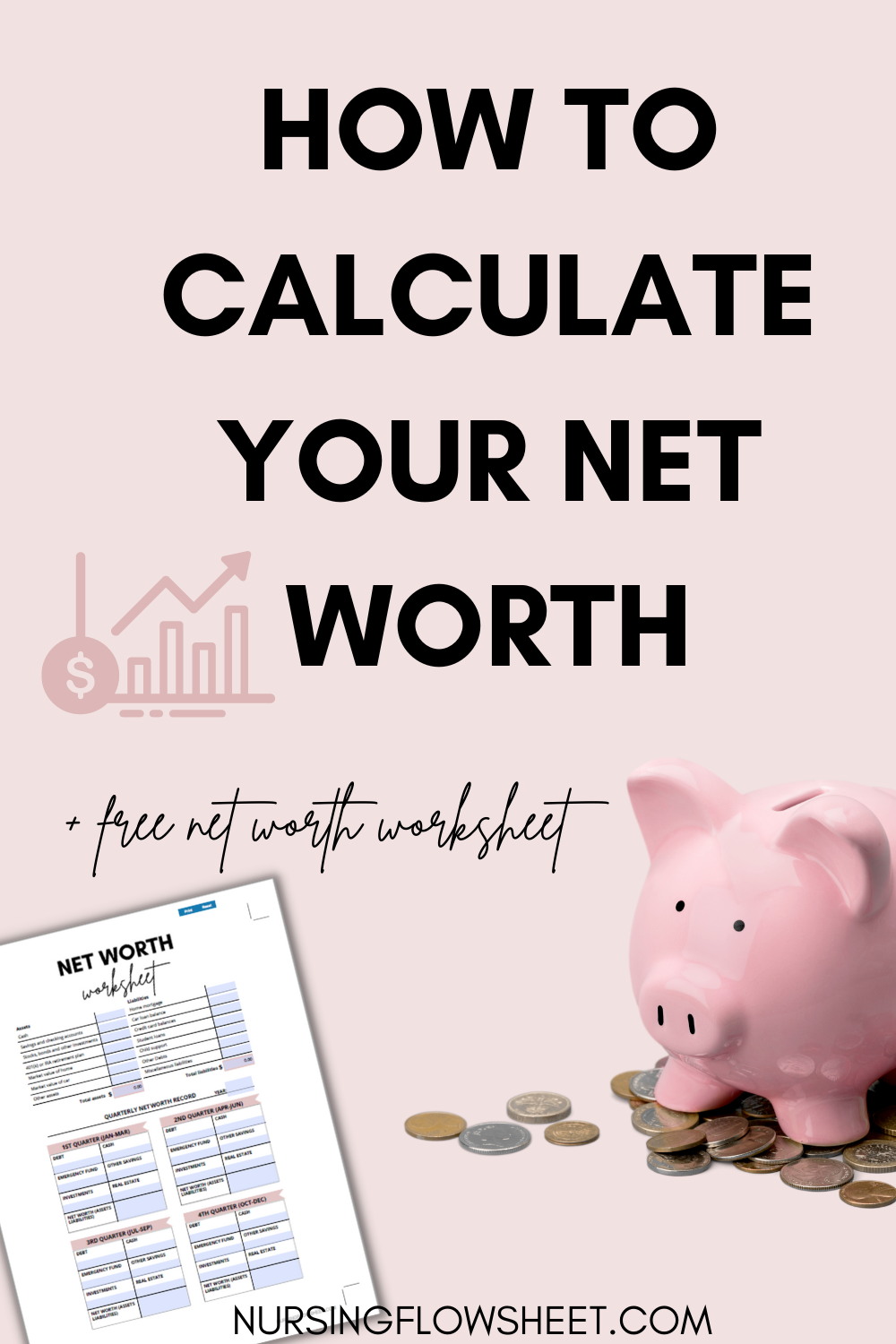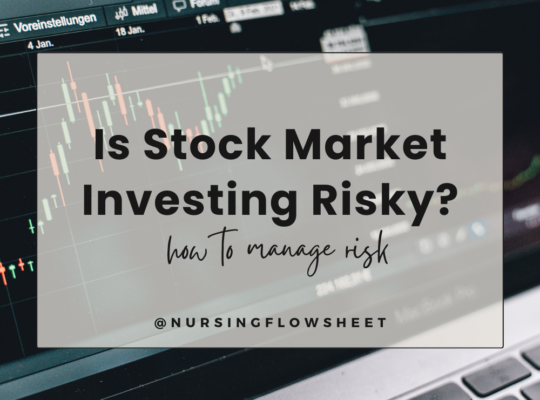First rule of investing is never invest in anything you don’t understand. (This post is not a financial advice, but just tips from somebody who’s been there, done that)
I grew up in a household that saves money ~ but only keep the money in a savings account. I thought that I was doing great financially by doing that. Little did I know that I was LOSING money after all these years working for my hard earned income.
First of all, What is a ROTH IRA?
Roth IRAs are retirement savings accounts that build on after-tax contributions. IRA stands for “individual retirement account” and “Roth” means that you contribute to it with money you’ve already paid taxes on.
This retirement account is different from your accounts that are offered by your employers.
Here are the 5 Benefits of a ROTH IRA:
1. Earnings grow tax free ~ The interest accrued in your account is tax-free. For example if you put $50 and it earns $10, you can take $60 from it tax free. One caveat is in order to contribute to a Roth IRA in 2020, single tax filers must have a modified adjusted gross income (MAGI) of $139,000 or less. In 2021, the income limit rises to $140,000. If married and filing jointly, your joint MAGI must be under $208,000 in 2021 (with a reduced limit for contribution) ~ If you are making more than the income limit, you can do what they call a backdoor Roth IRA.
UPDATE 2024 (Contribution limit is now $7000 annually and income limit is single tax filers must have a modified adjusted gross income (MAGI) of less than $153,000 in 2023. In 2024, the threshold rises to $161,000. If married and filing jointly, your joint MAGI must be under $228,000 in 2023.)
2. Access to money if you need it . You can withdraw your contributions at any time for any reason, penalty free and tax free. While you can withdraw your contributions tax-free and penalty-free at any time, earnings work differently. If you withdraw earnings, you may owe taxes and penalties. It depends on your age, how long you have held the account, and how you plan to use the money
It’s a great perk if an emergency rises. However, I don’t recommend withdrawing early unless something REALLY bad happens. you are wasting that tax-free growth benefit and you can’t pay back whatever amount you took out from your account.
3. Tax-free withdrawals in retirement. The big payoff of a Roth account is that you won’t be taxed on withdrawals like traditional IRAs and other retirement plans. Although you must be 59½ or older and have held the account at least five years to make those tax-free withdrawals, those conditions are easy to meet, especially if you start saving early.
4. You can contribute as long as you’re earning income. You can continue making contributions to a Roth IRA as long as you’re earning money. So you can enjoy the flexibility of keeping your account growing if you want to keep working.
5. Pass tax-free money to heirs. A Roth IRA is a good choice if you want to pass money on to children, grandchildren or other heirs because you can share more of your wealth with them (since they can withdraw it tax-free).
How to Open a Roth IRA
Opening an account is as simple as opening a bank account online.
Fidelity, Vanguard, or TD Ameritrade are all good options. You can also open one with m1 finance and receive FREE $30. I personally have Fidelity since I had my 403b contributions there already from my previous employer. Picking which brokerage account is less important than the actual ROTH IRA account and the investments so just pick one and get going!
You will need your driver’s license number, social security number, bank information, and employment information. You’ll also name beneficiaries of the account if something were to happen to you. You’ll need their name, birthday, and social security number.
Follow all the steps and you’re good to go!
You don’t need to have a lot of money to start investing. You can put $20 if you want at first.
Picking Investments
I know this sounds very intimidating. Which stocks should I buy? Should I get mutual funds or ETF?
I will make it very simple for you to understand (how I understood it before). Think of your Roth IRA as a basket and eggs are your investment. The eggs that you choose in your basket is up to you! You don’t need to be a financial advisor or know everything about investing in depth to start investing in your Roth IRA.
You can always change your eggs in the future depending on your risks tolerance, income status etc.
Mutual Funds vs. ETF’s (2 different eggs but both can be put in your basket for diversification of portfolio ~ )
Why Index Funds are great!
An index fund is passively managed with the goal of matching the market index it tracks. Index funds can exist as mutual funds or ETF’s.
Index funds also have low fees since they are passively managed.
In a nutshell, all index funds are mutual funds and ETF’s, but not all mutual funds and ETF’s are index funds.
I love index funds for beginners because of their low fees and broad range of stocks in a single package.
LEARN HOW TO INVEST IN INDEX FUNDS

A good index fund with low fees is good to start with. I am a long-term investor and my motto is “buy and hold”. I personally stick with a passively-managed index fund because it’s riskier to do mutual funds (also has higher fees).
S&P 500 Index Funds ~ The S&P 500 is a mix of the 500 largest companies in the US. Investing in one of these index funds means you’ll be invested 100% in stocks. In order for you to lose money in the long term in an S&P 500 index fund, every one of the 500 largest US companies would have to go bankrupt at the same time. (That means Apple, Google, Chase Bank, Ford etc) The S&P 500 (SPY) is a great index with solid returns long-term. Check out this chart for a 90-year history of the S&P 500.
Keep It Simple, just Buy and Hold
Remember that investing is a long-term game. Don’t get worried about short-term market fluctuations or temporary downturns. Leave your money alone and don’t touch it during a recession! If anything, you should invest during the dip, it’s like everything is on sale!
No one can predict the market and no matter how people especially day traders try to explain to you the complex investing strategies, stick to buying funds that has low fees, proven history of good returns and just hold on to those funds until you retire!
As you learn more about investing along the way, you can always change your investment strategies.
For now, open a Roth IRA account, invest on index funds and hold. Making consistent contributions, preferably maxing out on the annual contribution limit is what’s important. So if you can fit investing into your budget, that would be ideal.
Don’t let the fear of not knowing everything keep you from missing out on growing your money right now.
Keep your strategy simple, don’t let the news and temporary downturns scare you, and buy and hold.









[…] READ: 5 Benefits of ROTH IRA […]
[…] READ: Benefits of a ROTH IRA […]